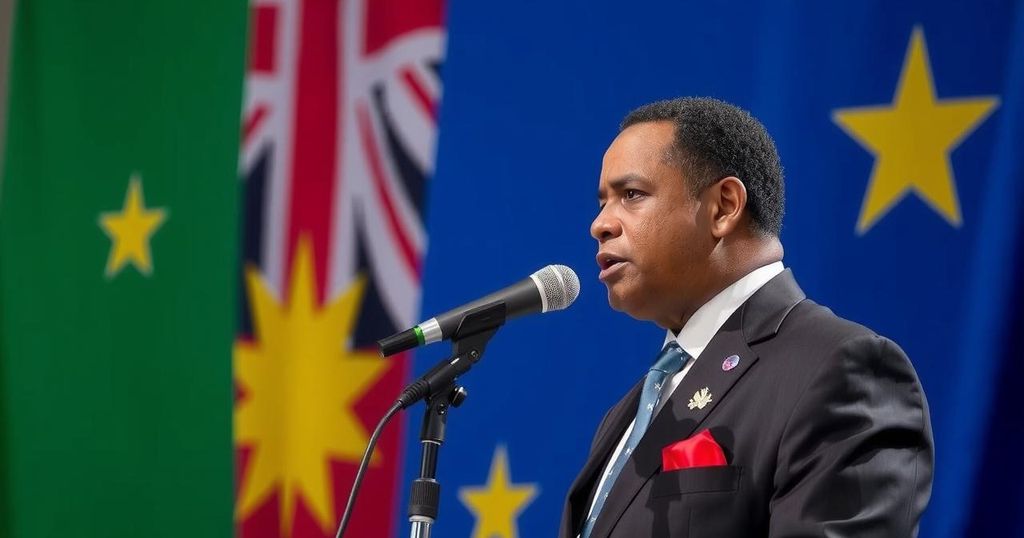In Mauritius, Prime Minister Pravind Jugnauth has conceded defeat in the legislative elections, with opposition leader Navin Ramgoolam set to reclaim the premiership. The elections showcased a significant public turnout and occurred amid concerns regarding governance and a recent wire-tapping scandal. The shift in political leadership marks a critical moment in Mauritius’s democratic evolution, as citizens signal a desire for improved representation and reform.
In a significant political shift, Prime Minister Pravind Jugnauth of Mauritius has conceded defeat in the recent legislative elections. His announcement follows strong indications that the opposition, led by Navin Ramgoolam of the Alliance of Change coalition, is poised to take control of the government. Despite the final electoral results still pending, Jugnauth acknowledged the “big defeat” faced by his Lepep alliance in the elections, and expressed his respect for the electorate’s choice, wishing the newly elected representatives success in leading the nation. The rapid decline of Jugnauth’s administration comes in the wake of a contentious campaign marred by a wire-tapping scandal, which saw the private communications among political figures leaked, raising serious concerns regarding transparency and governance in the country. Historically, both Jugnauth and Ramgoolam hail from prominent political families that have significantly influenced Mauritian politics since its independence from British rule in 1968. Ramgoolam, having held the position of prime minister two times previously, has emphasized the expectations of voters for change and improvement in living standards amidst ongoing economic challenges. Voter turnout for the elections was notably high at approximately 80%, reflecting significant public engagement amidst widespread concerns over the nation’s governance and economic stability. Despite the reported issues within the administration, Mauritius continues to enjoy relatively robust economic performance, bolstered by diverse sectors such as tourism and manufacturing. However, questions regarding corruption and governance endure as critical issues facing the nation moving forward. The recent election serves as a decisive moment in Mauritian politics, potentially transitioning leadership to a figure with historical roots in the struggle for independence. Ramgoolam’s coalition is anticipated to prioritize the strengthening of the nation’s democratic institutions and addressing the pressing needs of its citizens. The situation underscores a desire for renewed leadership and strategic direction within one of Africa’s most stable democracies.
The article discusses the recent legislative elections in Mauritius, where the political landscape may shift significantly following the announcement of Prime Minister Pravind Jugnauth’s defeat. The background of Mauritius as a stable democracy and the challenges it faces, including governance issues and corruption, provide context to the developments. Furthermore, the history of political families in Mauritius adds depth to the ongoing political rivalry, particularly the longstanding influence of the Ramgoolam family in the country’s history. The electoral process is structured through a combination of first-past-the-post and the ‘best loser’ system, which adds layers of political dynamics to the results.
In conclusion, the recent elections mark a pivotal point in Mauritius’s political trajectory, as the apparent victory of the opposition led by Navin Ramgoolam suggests a desire for change among the electorate. The acknowledgment of defeat by Prime Minister Jugnauth highlights the growing discontent with current governance and the urgent demand for transparency and effective leadership. As Mauritius progresses, the new government will need to address the challenges of increasing political engagement and economic disparities while striving to uphold the nation’s democratic values.
Original Source: www.seychellesnewsagency.com






